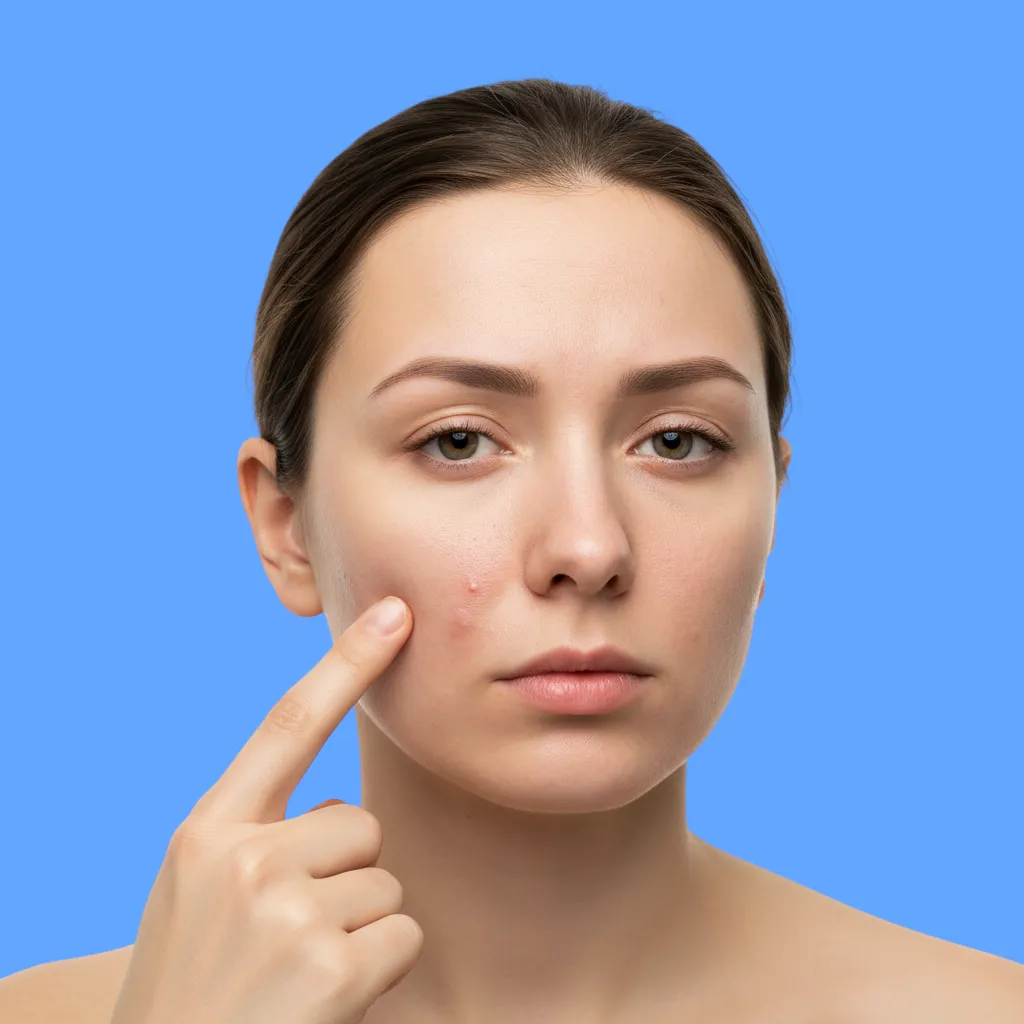What is acne vulgaris?
Acne vulgaris is a chronic skin condition that affects the sebaceous glands and hair follicles, appearing as pimples or blackheads or whiteheads, mostly on the face, chest, shoulders, and back.
It usually begins during puberty due to hormonal changes, but it may persist for years or appear later in life. Acne is not just a cosmetic issue; it can have psychological effects, especially if it leaves scars or marks.
Its severity ranges from mild to severe, and the patient may need long-term treatment. Acne is not solely related to personal hygiene; it results from a complex interaction between hormones, oils, bacteria, and the immune system.
What are the causes of acne vulgaris?
There are several common causes of acne vulgaris, including:
- Increased oil secretion from sebaceous glands under the influence of androgens
- Blockage of oil ducts due to accumulation of dead skin cells
- Activity of natural skin bacteria like Cutibacterium acnes that trigger inflammation
- Immune response leading to redness and pus formation
- Hormonal changes during puberty, menstruation, or pregnancy
- Use of unsuitable cosmetic products
- Genetic factors that increase susceptibility
- Psychological stress that may worsen the condition
- Consumption of foods rich in sugars and fats
What are the common symptoms of acne?

Several common symptoms may be experienced by the patient, including:
- Appearance of blackheads or whiteheads on the skin surface
- Painful or inflamed red pimples
- Deep skin cysts filled with pus
- Redness in affected areas
- Scars or marks after pimples heal
- Noticeable increase in skin oiliness
When should you see a doctor?
It is advised to consult a doctor promptly if any of the following occur:
- Widespread pimples on the face or body
- Painful cysts or pus-filled pimples
- Persistent pimples without improvement
- Appearance of scars or dark spots after healing
- Psychological impact or reduced self-confidence
How is acne diagnosed?
Acne is diagnosed using several methods, including:
- Clinical examination of the skin to determine the type and severity of pimples
- Evaluation of medical history and genetic factors
- In some cases, hormonal tests are conducted, especially for women
- Skin imaging to document and monitor the condition
- Exclusion of other skin diseases with similar appearance
What are the treatment options for acne?
There are several treatment options for acne, including:
- Topical creams like tretinoin or trifarotene to exfoliate and open pores
- Topical or oral antibiotics to reduce inflammation
- Oral isotretinoin for severe cases under strict medical supervision
- Laser therapy to stimulate collagen and reduce scarring
- Chemical peels to remove the outer skin layer
- Blue light therapy to kill bacteria
- Use of non-comedogenic medical cosmetics
- Moisturizers and sunscreens suitable for oily skin
Can acne be cured?
Yes, acne can be significantly controlled, but complete recovery depends on several factors such as skin type, severity, and adherence to treatment.
In some cases, the condition may last for years and require regular follow-up. Improvement may begin after 3 months of treatment and reach up to 80% after 6 months, but sudden discontinuation may lead to relapse.
What are the prevention tips for acne?
There are several tips to help prevent acne, including:
- Daily cleansing with a gentle, oil-free cleanser
- Avoid touching or squeezing pimples
- Use sunscreen suitable for oily skin
- Follow a healthy diet low in sugars and fats
- Remove makeup before sleeping
- Moisturize with non-oily products
- Wash hands before touching the face
- Avoid products that clog pores
What are the possible complications of acne?
Some complications may occur if treatment is neglected, such as:
- Appearance of dark spots or persistent redness
- Permanent skin scarring
- Negative psychological impact
- Worsening of the condition and spread of pimples
- Bacterial resistance to antibiotics
Frequently asked questions about acne
Can acne be permanently cured?
It can be controlled, but may return if treatment is stopped.
Does sunlight treat acne?
No, it may actually worsen irritation and redness.
Does diet affect acne?
Yes, foods high in fats and sugars may worsen the condition.
Can makeup be used?
Yes, as long as it is non-oily and suitable for the skin.
Summary
Acne is not just a skin issue; it requires a comprehensive understanding and treatment approach.Prevention starts with daily skincare, and recovery needs patience and commitment.
Do not hesitate to consult a doctor when the condition worsens, and avoid quick or random solutions.Remember, every skin is unique what works for others may not work for you.